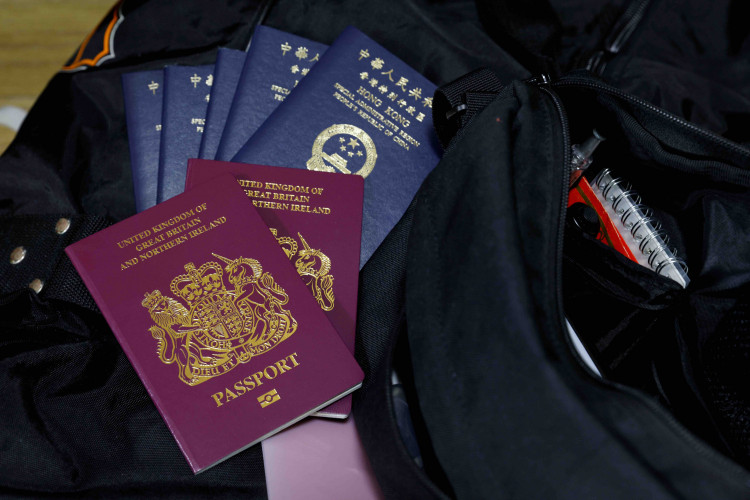The decision by the UK to allow entry of holders of BN(O) passports "won't have a long-term effect on China, a mega economy," a state-controlled newspaper said in an editorial Monday.
"There may be some short-term effects, but they are not insurmountable. Moreover, the departure of some people who are not willing to build a better Hong Kong is not worth the anxiety of the Hong Kong Special Administrative Region government and the rest of China," the Global Times editorial said.
"Therefore, the UK's move in a political sense is larger than its effects in other spheres. Presumably, most Hong Kong residents will be very cautious about immigrating to the UK via the BN(O) visa," it added.
"The UK should be careful not to lose itself as Australia has and turn itself into an appendage of the U.S. when it bangs the drum for the U.S. At least in its stance toward China, people can clearly see that the UK is constantly reshaped by the U.S. Britain's autonomy is now far less than that of many of the U.S.' Asian allies.
"Several years ago, the UK stated that China-UK relations were in a "golden era." But now London is more like a puppet of Washington. It is abandoning its own international influence while missing simultaneously some potential important opportunities."
As of this past weekend Hong Kong and China no longer recognize British National (Overseas) passports - holders of which have been given a special path to UK citizenship.
"China will no longer recognize the so-called BN(O) passport as a travel document and ID document, and reserves the right to take further actions," China foreign ministry representative Zhao Lijian said.
British Prime Minister Boris Johnson said he was proud of the BN(O) immigration scheme. "I am immensely proud that we have brought in this new route for Hong Kong BN(O)s to live, work and make their home in our country," he said.
The UK expects between 123,000 and 153,700 passport bearers and their families will come in the first year, reaching up to 322,400 BN(O) status holders over the next five years.
Zhao accused the UK of breaching the 1984 Sino-British Joint Declaration when it "broke its commitment and created a bespoke visa route to citizenship."
China imposed a national security law on Hong Kong in July. It punishes dissent and limits free speech, amounting to what some critics call a breach of the Joint Declaration by China.
"Countries along the belt and road initiative might follow Beijing's move and no longer recognize BN(O) passports in the near future," Tian Feilong, a Hong Kong affairs expert at Beihang University in Beijing, told the South China Morning Post.
However, BN(O) status holders also have Hong Kong passports and most don't use their British passports for traveling.





